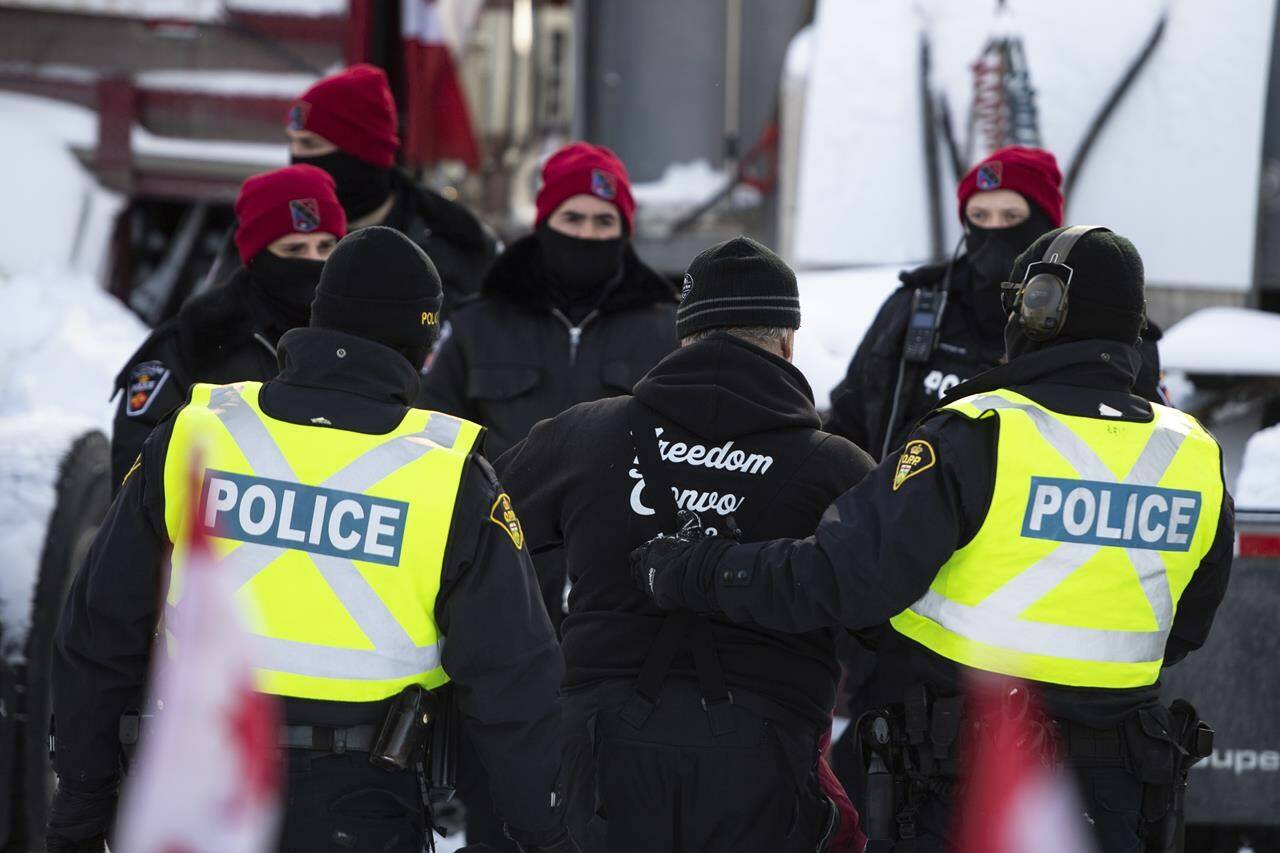Preparations to handle a potential return of the “Freedom Convoy” next February are already underway, says Ottawa’s new police chief.
Eric Stubbs, who took on the role last month, sent a letter to the mayor and the chair of the Ottawa Police Services Board on Monday telling them that a police liaison team is communicating with protest organizers.
In the letter, Stubbs wrote that the force “will not allow for the conditions that led to the unlawful protests seen in February 2022.”
That promise comes after Prime Minister Justin Trudeau’s national security adviser told a House of Commons committee earlier this month that federal officials were also planning ahead for the potential event.
James Bauder, the co-founder of the Canada Unity group and one of the original organizers of last winter’s convoy, said in a November Facebook post that he’s planning a reunion in the name of “unity” from Feb. 18 to 21, with plans to leave Ottawa on Feb. 22.
Bauder and other central organizers, such as Tamara Lich, Pat King and Chris Barber, are facing criminal charges for their role in the weeks-long protest. Bauder’s bail conditions require him to stay out of downtown Ottawa.
Stubbs said Ottawa police will ensure that precautions are in place to prevent a repeat of last winter’s demonstrations, when thousands of protesters and their vehicles blockaded downtown streets in opposition to COVID-19 restrictions and the federal Liberal government.
The disruptions forced some residents out of their homes in the downtown core amid around-the-clock noise and reports of harassment by protesters. Many businesses closed their doors. And part of Wellington Street, the road in front of Parliament Hill where the protest was concentrated, has remained closed to traffic ever since.
The executive director of the Sparks Street BIA, which represents nearby businesses, is urging the city to allow traffic to resume. Even if Wellington Street does not reopen, Kevin McHale said, the city should at least consult with businesses and residents about the impact the closure has on them.
“The restaurants on the street can’t actually engage with things like delivery services, because there’s nowhere for their drivers to legally park,” said McHale.
Wellington Street was a major east-west artery in Ottawa’s downtown, and with its closure, other nearby streets have become more congested and are taking the bulk of the large traffic.
“The irony is that this road (is) closed because of a truck convoy, and now we’re actually putting trucks into neighbourhoods that never had to deal with them before,” said McHale.
In an interview with CBC’s Ottawa Morning radio show on Tuesday, Stubbs said he is meeting with the Parliament Hill officials to discuss how they will collaborate on safety. Stubbs said that the Ottawa police still have jurisdiction over Wellington Street and if any crime occurs, “it’s our responsibility.”
A House of Commons committee recently recommended that jurisdiction for Wellington Street be transferred to the Parliamentary Protective Service, which is responsible for security on Parliament Hill.
In a supplementary report, Liberals on the committee said they would support a land transfer from the City of Ottawa to the federal government such that the area immediately south of Parliament Hill could be formally added to the precinct.
Yasir Naqvi, the member of Parliament for Ottawa Centre, said in a statement to The Canadian Press that he was glad to see law enforcement tackling the issue early on.
Naqvi said he hopes the police can “replicate their success” in controlling other protest events since last winter, “rather than a repeat of February 2022.”
—Cindy Tran, The Canadian Press
RELATED: ‘Freedom Convoy’ protest voted news story of the year
RELATED: National security officials planning for 2023 ‘Freedom Convoy’ reboot: adviser to PM

